This article provides an in-depth look at various types of legal cases in the U.S. and offers guidance on finding qualified attorneys in Nashville, Tennessee.
Understanding the Landscape of Legal Cases in the U.S.
In the United States, the legal system is vast and encompasses a wide array of cases. Each type of case requires specific expertise and understanding of the law. Whether you are dealing with a personal injury claim or facing criminal charges, knowing how to find a qualified attorney is crucial for achieving a favorable outcome.
Personal Injury Cases
Personal injury cases arise when an individual suffers harm due to another’s negligence. This can include car accidents, slip and falls, and workplace injuries. To find a competent personal injury attorney, consider the following:
- Experience: Look for attorneys with a proven track record in personal injury cases.
- Reputation: Check online reviews and testimonials.
- Consultation: Many attorneys offer free consultations; use this opportunity to assess their approach.
Medical Malpractice Claims
Medical malpractice occurs when healthcare professionals fail to meet the standard of care, resulting in harm to patients. To find an attorney specializing in this field:
- Specialization: Ensure the attorney has specific experience in medical malpractice.
- Credentials: Look for board certifications and memberships in legal associations.
Breach of Contract Disputes
These disputes arise when one party fails to fulfill their contractual obligations. To effectively resolve these issues:
- Contract Law Expertise: Seek attorneys who specialize in contract law.
- Negotiation Skills: A good attorney should have strong negotiation skills to settle disputes amicably.
Property Disputes
Property disputes can include issues related to ownership, boundaries, and easements. When looking for a real estate lawyer:
- Local Knowledge: Choose someone familiar with Nashville’s property laws.
- Track Record: Look for successful case outcomes in similar disputes.
Landlord-Tenant Disputes
These disputes often arise over lease agreements and property conditions. To navigate these conflicts:
- Experience in Real Estate Law: Ensure the attorney has a solid background in landlord-tenant issues.
- Understanding of Local Laws: Familiarity with Nashville’s housing regulations is essential.
Defamation Cases (Libel/Slander)
Defamation involves false statements that harm a person’s reputation. To pursue these sensitive claims:
- Media Law Expertise: Look for attorneys with experience in media and defamation law.
- Case Strategy: Discuss their approach to handling defamation cases during consultations.
Employment Disputes
Employment disputes can range from wrongful termination to workplace discrimination. To protect your rights:
- Specialization: Seek attorneys who focus on employment law.
- Negotiation and Litigation Skills: Assess their ability to handle both negotiations and court cases.
Product Liability Cases
These claims arise when defective products cause harm. To find a qualified attorney:
- Consumer Protection Knowledge: Look for lawyers with experience in product liability.
- Record of Success: Investigate their history of winning similar cases.
Wrongful Death Claims
These claims seek compensation for losses due to someone else’s negligence. When selecting an attorney:
- Compassionate Approach: Choose a lawyer who understands the emotional weight of these cases.
- Experience: Ensure they have handled wrongful death claims successfully.
Class Action Lawsuits
Class action lawsuits allow groups to sue collectively. To enhance your chances of success:
- Track Record: Find attorneys with a history of successful class action suits.
- Resources: Ensure they have the resources to handle large-scale litigation.
Criminal Cases: Assault and Battery
Assault and battery cases involve intentional harm. To navigate these charges:
- Criminal Defense Experience: Seek attorneys who specialize in criminal defense.
- Understanding of Local Laws: Ensure they are familiar with Tennessee’s criminal statutes.
Drug Offenses
Drug offenses encompass a range of illegal activities. To find a knowledgeable attorney:
- Experience in Drug Law: Look for attorneys with a focus on drug-related cases.
- Negotiation Skills: Strong negotiation skills can lead to reduced charges or plea deals.
Theft and Burglary Charges
These serious offenses require skilled legal representation. To find a competent attorney:
- Criminal Defense Background: Seek attorneys with experience in theft and burglary cases.
- Trial Experience: A lawyer with trial experience can better represent you in court.
Fraud and Embezzlement Cases
These involve deceit for financial gain. To find an effective attorney:
- Specialization in White-Collar Crime: Look for lawyers who specialize in fraud cases.
- Proven Track Record: Investigate their success in similar cases.
Domestic Violence Cases
These cases require sensitive handling. To find the right attorney:
- Experience in Family Law: Seek attorneys familiar with domestic violence issues.
- Compassionate Approach: Choose someone who understands the emotional aspects of these cases.
Divorce and Family Law
Divorce cases often involve complex emotional and financial issues. To facilitate a smoother process:
- Experience in Family Law: Look for attorneys who specialize in divorce and family law.
- Negotiation Skills: A good attorney should have strong negotiation skills for settlements.
Bankruptcy Cases
Bankruptcy provides relief for individuals or businesses unable to meet financial obligations. To navigate this process:
- Specialization in Bankruptcy Law: Seek attorneys with specific experience in bankruptcy cases.
- Understanding of Local Laws: Ensure they are familiar with Tennessee’s bankruptcy regulations.
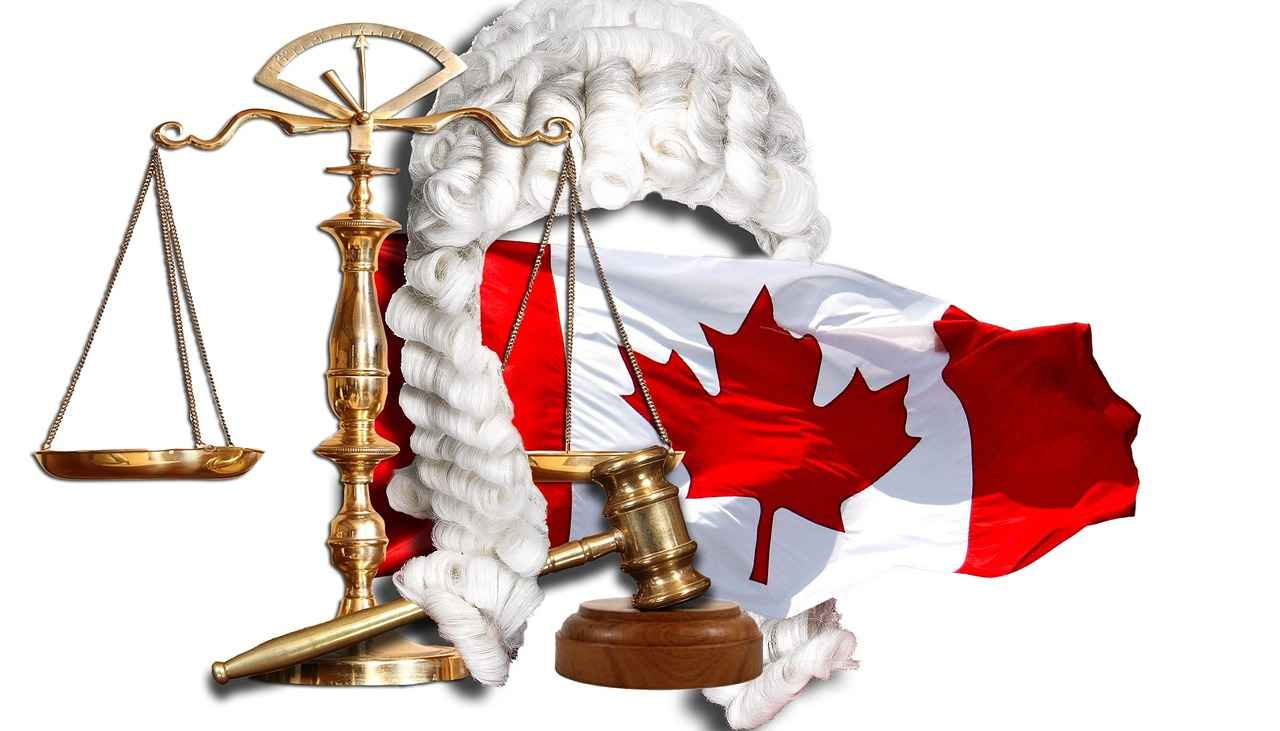
Personal Injury Cases
Personal injury cases are legal disputes that arise when an individual suffers harm due to the negligence or intentional actions of another party. These cases can encompass a wide range of incidents, including car accidents, slips and falls, workplace injuries, and even medical malpractice. Understanding how to select a personal injury attorney is crucial for successfully navigating these claims and securing the compensation you deserve.
When searching for a personal injury attorney, consider the following important factors:
- Experience and Specialization: Look for an attorney who specializes in personal injury law. Their experience in handling similar cases can significantly impact the outcome of your claim. An attorney with a proven track record in winning cases similar to yours will have the expertise needed to navigate the complexities of the legal system.
- Reputation: Research potential attorneys by reading online reviews, checking their ratings on legal websites, and asking for referrals from friends or family. A lawyer’s reputation can provide insight into their professionalism and success rate.
- Initial Consultation: Most personal injury attorneys offer a free initial consultation. Use this opportunity to discuss your case, ask questions, and assess their communication style. A good attorney should be willing to listen and provide clear answers to your concerns.
- Contingency Fees: Many personal injury attorneys work on a contingency fee basis, meaning they only get paid if you win your case. Ensure you understand their fee structure and any additional costs that may arise during the process.
- Trial Experience: While most personal injury cases settle out of court, it’s essential to choose an attorney who is willing to take your case to trial if necessary. Their readiness to litigate can strengthen your negotiating position.
In major cities like New York, Los Angeles, and Chicago, the competition among personal injury attorneys is fierce. Therefore, it’s essential to conduct thorough research to find a qualified attorney who meets your specific needs. Utilize legal directories, bar association resources, and online platforms to compare attorneys in your area.
Additionally, be wary of red flags during your search. If an attorney makes unrealistic promises, lacks transparency about fees, or pressures you into making quick decisions, it’s advisable to seek another option. Trust your instincts—choosing the right attorney can make a significant difference in the outcome of your personal injury case.

Medical Malpractice Claims
represent a critical area of law that addresses the failures of healthcare professionals to provide adequate care, resulting in harm to patients. These cases can be complex, requiring not only a deep understanding of medical procedures but also a thorough grasp of legal principles. When pursuing a medical malpractice claim, the choice of attorney can significantly influence the outcome. Here are essential insights on how to find the best legal representation for such claims.
First and foremost, it is vital to seek out an attorney who specializes in medical malpractice. This specialization ensures that the attorney is well-versed in the nuances of medical laws and standards of care. Look for attorneys who have a proven track record in handling similar cases, as their experience can be invaluable. You can begin your search by utilizing platforms such as Avvo, FindLaw, and Martindale-Hubbell, which provide comprehensive listings of attorneys along with their ratings and reviews.
When evaluating potential attorneys, consider their credentials. A board certification in personal injury law or a membership in professional organizations, such as the American Association for Justice, can indicate a higher level of expertise. Additionally, inquire about their past case results, particularly in medical malpractice claims. An attorney who has successfully obtained settlements or verdicts in similar cases demonstrates their capability to advocate effectively on your behalf.
Another important factor is the attorney’s communication style. During your initial consultation, pay attention to how they explain complex legal terms and medical concepts. A skilled attorney should be able to break down intricate details into understandable terms, ensuring that you fully comprehend your case. This ability not only fosters trust but also reflects their proficiency in the field.
Furthermore, consider the attorney’s approach to client support. Medical malpractice cases can be lengthy and emotionally taxing. An attorney who prioritizes client communication, providing regular updates and being responsive to inquiries, can alleviate some of the stress associated with the legal process. Ensure that you feel comfortable discussing your case openly with them.
Lastly, be aware of potential red flags. If an attorney guarantees a specific outcome or pressures you into making quick decisions, it may be wise to seek alternatives. Good attorneys will provide realistic expectations based on their experience and the specifics of your case. Transparency regarding fees is also crucial; ensure you understand their billing structure, including any contingency fees, before signing any agreements.
In summary, finding the right attorney for your medical malpractice claim involves thorough research and careful consideration of various factors, including specialization, credentials, communication style, and client support. By following these guidelines, you can enhance your chances of achieving a favorable outcome in your case.

Breach of Contract Disputes
Breach of contract cases represent a significant area of legal disputes in the United States, arising when one party fails to meet their contractual obligations. These issues can occur in various contexts, from personal agreements to complex business contracts. Understanding how to navigate these disputes effectively is crucial for anyone involved in a contractual relationship.
When facing a breach of contract situation, the first step is to assess the nature of the breach. There are typically two types: material breaches and minor breaches. A material breach occurs when the failure to perform is significant enough to undermine the contract’s purpose, while a minor breach may not affect the overall agreement but still requires remedy. Determining the type of breach can influence the legal remedies available.
Finding a qualified attorney experienced in contract law is essential for effective resolution. Here are some practical steps to consider:
- Research Local Attorneys: Start by searching for attorneys in your area who specialize in contract law. Look for those with a proven track record in handling breach of contract cases.
- Check Credentials: Verify the attorney’s credentials, including their educational background, years of experience, and any relevant certifications. Membership in professional organizations, such as the American Bar Association, can also indicate a commitment to ethical standards.
- Read Reviews: Online reviews and testimonials can provide insight into the attorney’s reputation and success rate. Look for feedback on their communication skills, responsiveness, and overall effectiveness in resolving disputes.
- Schedule Consultations: Many attorneys offer free consultations. Use this opportunity to discuss your case and evaluate their approach. Ask about their experience with similar cases and their strategies for resolution.
- Assess Communication Style: Ensure that the attorney communicates clearly and is willing to explain legal concepts in a way that you can understand. A good attorney should be approachable and responsive to your questions.
- Consider Costs: Discuss the attorney’s fee structure upfront. Some may charge hourly rates, while others may work on a contingency fee basis. Make sure you understand how fees will be handled throughout the process.
It’s important to be aware of potential red flags when selecting an attorney. Avoid those who:
- Promise guaranteed outcomes, as no attorney can assure a specific result.
- Pressure you into making quick decisions without fully understanding your options.
- Have a history of disciplinary actions or complaints against them.
In conclusion, breach of contract disputes can be complex and emotionally charged. Engaging a knowledgeable attorney can significantly impact the outcome of your case. By following these steps and being vigilant in your selection process, you can find a qualified legal professional to advocate for your rights and interests.

Property Disputes
are a common issue that can arise in various contexts, often leading to significant conflict between parties involved. These disputes can encompass a range of issues, including ownership, boundaries, and easements. Understanding the nuances of property law is essential for anyone facing a potential dispute, as the implications can be both financially and emotionally taxing.
When it comes to property ownership, disputes frequently arise over who holds the rightful title to a property. This can occur due to unclear property records, inheritance issues, or even fraudulent claims. It is crucial to engage a real estate lawyer who possesses local expertise. They can help you navigate the complexities of property laws in your area, ensuring that your rights are protected and that you have a solid case if litigation becomes necessary.
Boundary disputes are another prevalent issue. These often occur when two property owners disagree on the exact location of their property lines. Such disputes can escalate quickly, particularly if one party has made alterations to the land, such as fencing or landscaping. A knowledgeable attorney can assist in resolving these conflicts by examining property surveys, historical records, and local zoning laws. They can also guide you through alternative dispute resolution methods, such as mediation, which can save time and money compared to a lengthy court battle.
Easements represent another area of potential conflict. An easement allows one party to use a portion of another party’s property for a specific purpose, such as a shared driveway or utility access. Disputes can arise if one party feels that the terms of the easement are being violated, or if there is a lack of clarity regarding the easement’s extent. Engaging a real estate attorney can help clarify these issues, ensuring that all parties understand their rights and obligations.
In addition to navigating these specific issues, a qualified attorney can also provide invaluable advice on how to prevent disputes from escalating. This includes conducting thorough due diligence before purchasing property, maintaining clear communication with neighbors, and understanding local property laws. By taking proactive steps, property owners can often avoid disputes altogether.
When searching for a lawyer to assist with property disputes, consider utilizing reputable legal directories or referral services. Look for attorneys who specialize in real estate law and have a proven track record in handling similar cases. Additionally, pay attention to client reviews and testimonials, as they can provide insight into an attorney’s effectiveness and professionalism.
In conclusion, property disputes are complex and can have lasting implications if not handled properly. Engaging a skilled real estate lawyer with local expertise is essential for navigating these issues effectively. By understanding your rights and seeking professional guidance, you can work towards a resolution that protects your interests and preserves your property rights.
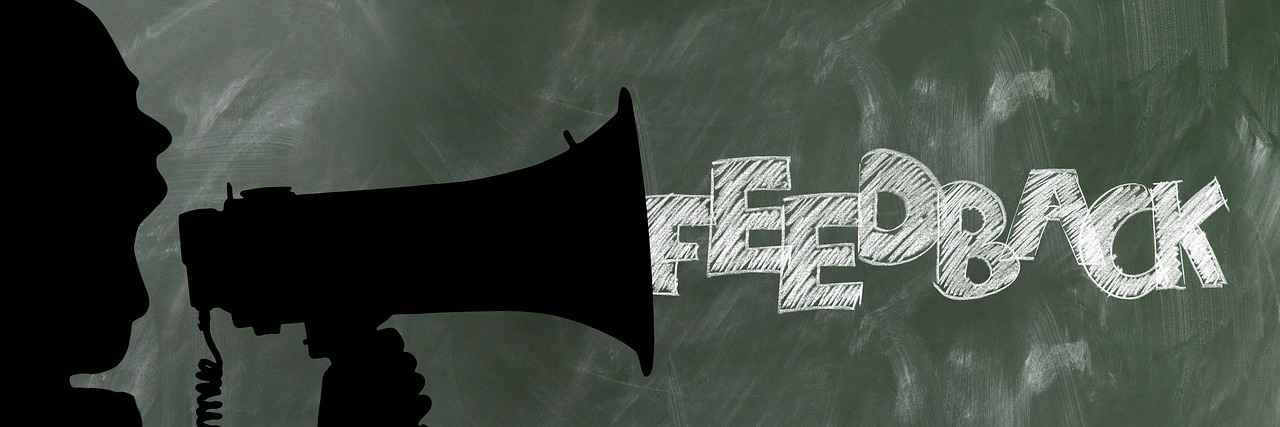
Landlord-Tenant Disputes
are a common occurrence in the rental market, often stemming from misunderstandings regarding lease agreements or the condition of the property. These disputes can lead to significant stress for both landlords and tenants, making it crucial to understand your rights and responsibilities. In this article, we will explore the various aspects of landlord-tenant disputes and provide guidance on finding a competent attorney to assist in resolving these conflicts.
One of the most frequent causes of landlord-tenant disputes involves lease agreements. Lease agreements outline the terms and conditions agreed upon by both parties, including rent, duration of the lease, and maintenance responsibilities. Disagreements may arise when either party fails to adhere to these terms. For example, if a landlord does not maintain the property in a habitable condition, tenants may have grounds for legal action. Conversely, if tenants fail to pay rent on time, landlords may seek eviction.
Another critical factor in these disputes is the condition of the property. Tenants have the right to live in a safe and well-maintained environment. If a property has issues such as plumbing problems, pest infestations, or structural damages, tenants should document these issues and communicate with their landlord. If the landlord fails to address these concerns, tenants may need to seek legal advice to understand their options.
| Common Issues in Landlord-Tenant Disputes | Potential Solutions |
|---|---|
| Failure to make necessary repairs | Document issues and send a formal request for repairs |
| Unlawful eviction | Consult with an attorney to understand tenant rights |
| Security deposit disputes | Review state laws regarding security deposit returns |
| Lease violations | Negotiate terms or seek mediation |
When faced with a landlord-tenant dispute, it is essential to seek legal counsel. Here are some steps to find a knowledgeable attorney:
- Research Local Attorneys: Start by searching for attorneys who specialize in landlord-tenant law in your area. Websites like Avvo and FindLaw can provide listings and reviews.
- Check Credentials: Look for attorneys with experience in real estate law and a good track record in handling landlord-tenant disputes.
- Consult with Local Bar Associations: Many local bar associations offer referral services that can connect you with qualified attorneys.
- Read Reviews: Online reviews and testimonials can give insight into an attorney’s reputation and effectiveness.
- Schedule Consultations: Many attorneys offer free initial consultations. Use this opportunity to discuss your case and gauge the attorney’s approach and expertise.
In addition to finding the right attorney, understanding your rights as a tenant is vital. Familiarize yourself with local laws governing landlord-tenant relationships, as these can vary significantly by state and municipality. For instance, some states have specific regulations regarding the maximum amount a landlord can charge for a security deposit or the time frame in which they must return it after a tenant moves out.
Finally, it is essential to keep detailed records of all communications with your landlord, including emails, texts, and written notices. Documentation can play a crucial role in resolving disputes and can serve as evidence if legal action becomes necessary.
In summary, landlord-tenant disputes can be complex and emotionally charged. By understanding your rights, maintaining clear communication, and enlisting the help of a qualified attorney, you can navigate these challenges more effectively. Remember, being proactive and informed is key to protecting your interests, whether you are a landlord or a tenant.
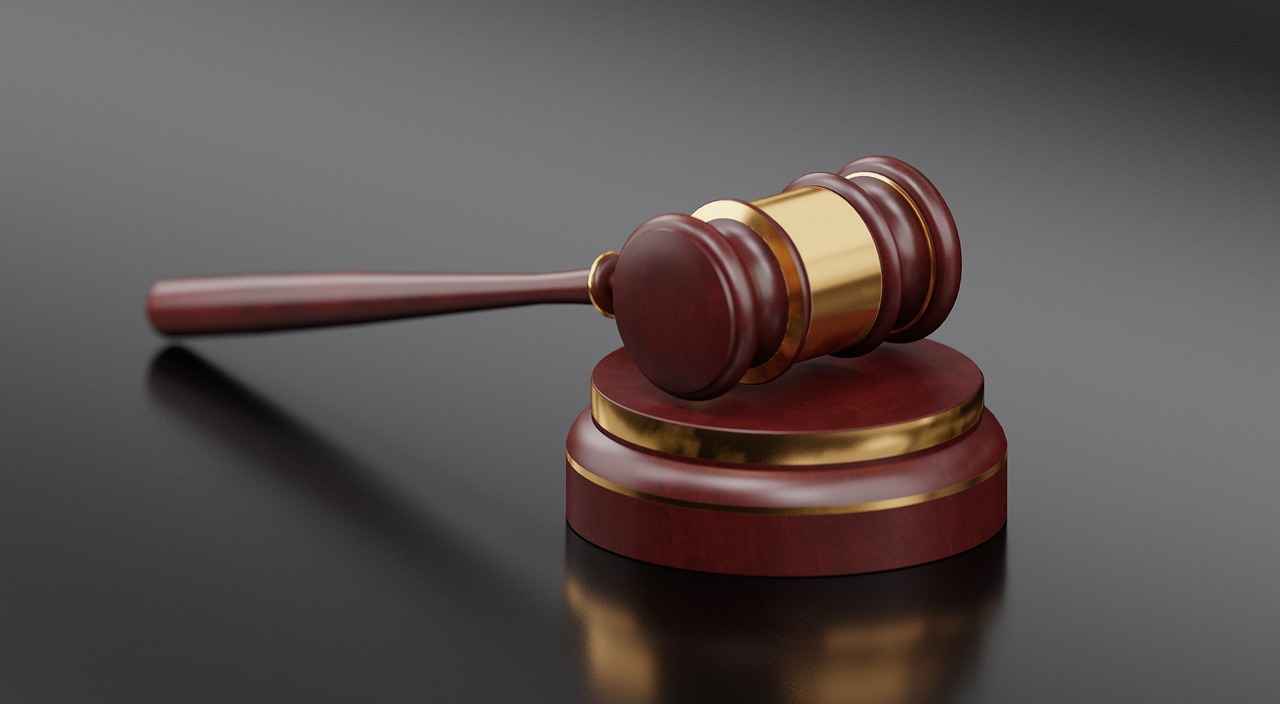
Defamation Cases (Libel/Slander)
Defamation cases, encompassing both libel and slander, are complex legal issues that arise when false statements are made about an individual, damaging their reputation. In today’s digital age, where information spreads rapidly through social media and online platforms, understanding defamation law is more crucial than ever. Individuals who believe they have been defamed must navigate a challenging legal landscape, making it essential to choose an attorney with expertise in media law.
Understanding Defamation: What You Need to Know
Defamation occurs when an untrue statement is published or spoken about someone, leading to harm to their reputation. The two main forms are:
- Libel: This refers to written defamation, which can include articles, blog posts, or social media content.
- Slander: This involves spoken defamation, such as comments made in conversations or broadcasts.
To prove defamation, the plaintiff must demonstrate that the statement was false, damaging, and made with a certain level of fault, depending on whether they are a public or private figure. This complexity underscores the need for a knowledgeable attorney.
Choosing the Right Attorney for Defamation Cases
When seeking legal representation for a defamation case, consider the following factors:
- Experience in Media Law: Look for attorneys who specialize in defamation and media law. Their understanding of the nuances in these cases will be invaluable.
- Track Record: Research the attorney’s history with defamation cases. Successful outcomes in similar cases can indicate their capability.
- Client Reviews: Check online reviews and testimonials. Previous clients can provide insight into the attorney’s professionalism and effectiveness.
- Initial Consultation: Many attorneys offer free consultations. Use this opportunity to discuss your case and gauge their understanding and approach.
Red Flags to Avoid
While searching for the right attorney, be vigilant for potential red flags:
- Vague Promises: Beware of attorneys who guarantee specific outcomes. Legal cases are unpredictable, and no attorney can assure victory.
- Lack of Specialization: Avoid attorneys who do not specialize in defamation or media law. Their lack of focus may hinder your case.
- Poor Communication: If an attorney is hard to reach or does not respond promptly, it may indicate a lack of commitment to your case.
Proven Methods for Finding Qualified Attorneys
In major metropolitan areas like New York City, Los Angeles, and Chicago, finding a qualified attorney can be overwhelming. Here are some effective strategies:
- Legal Directories: Utilize online legal directories such as Avvo, FindLaw, or Martindale-Hubbell. These platforms allow you to filter attorneys by practice area and location.
- Referrals: Ask friends, family, or colleagues for recommendations. Personal experiences can lead to trustworthy referrals.
- Bar Association Listings: Check the local or state bar association’s website for a list of licensed attorneys. This ensures they are in good standing with the legal community.
In conclusion, navigating a defamation case requires not only a strong legal strategy but also the right attorney. By focusing on experience, specialization, and communication, individuals can find a legal professional capable of effectively advocating for their rights. Whether you are in a bustling city or a quieter community, being informed and proactive in your search will significantly enhance your chances of a successful outcome.

Employment Disputes
encompass a wide array of conflicts that arise in the workplace, including but not limited to wrongful termination, workplace discrimination, sexual harassment, and wage disputes. Navigating these issues can be challenging, and having the right legal representation is essential to protect your rights and interests.
When searching for a lawyer specialized in employment law, consider the following steps to ensure you find a qualified professional who can effectively advocate for you:
- Research and Referrals: Start by asking friends, family, or colleagues for recommendations. Personal referrals can lead you to trustworthy attorneys. Additionally, utilize online legal directories such as Avvo or FindLaw to search for employment lawyers in your area.
- Check Credentials: Look for attorneys who are members of reputable organizations, such as the American Bar Association or local bar associations. Membership in these organizations often indicates a commitment to maintaining professional standards.
- Experience Matters: Focus on lawyers who have significant experience in handling employment law cases. Review their track record, including successful outcomes in cases similar to yours.
- Initial Consultations: Many attorneys offer free initial consultations. Use this opportunity to discuss your case, assess their communication style, and determine if you feel comfortable working with them.
- Evaluate Communication: Effective communication is vital. Ensure that the attorney listens to your concerns, explains legal concepts clearly, and keeps you updated on your case’s progress.
- Understand Fee Structures: Inquire about the attorney’s fee structure upfront. Some may work on a contingency basis, meaning they only get paid if you win your case, while others may charge hourly rates. Understanding these details can help you avoid unexpected financial burdens.
- Look for Reviews: Online reviews and testimonials can provide insight into an attorney’s reputation and client satisfaction. Websites like Google Reviews and Yelp can be helpful in gauging public perception.
In cases of wrongful termination, it is crucial to establish that your dismissal violated federal or state laws. Collect any relevant documentation, such as emails or performance reviews, to support your claims. An experienced attorney can help you navigate the complexities of employment law and advocate for your rights effectively.
Workplace discrimination can manifest in various forms, including age, race, gender, or disability discrimination. If you believe you have been discriminated against, it is essential to document incidents and gather evidence. A knowledgeable employment lawyer can assist you in filing a complaint with the Equal Employment Opportunity Commission (EEOC) and guide you through the legal process.
In cases of sexual harassment, it is vital to report the behavior to your employer promptly. If the issue is not addressed, seeking legal counsel can help you understand your options and potential remedies. An attorney familiar with these sensitive matters can provide the necessary support to navigate the emotional and legal challenges involved.
Employment disputes can be complex and emotionally taxing. Having a lawyer who specializes in employment law can make a significant difference in the outcome of your case. They can help you understand your rights, navigate legal procedures, and advocate for your interests in negotiations or court proceedings.
In summary, finding the right attorney for employment disputes involves thorough research, understanding their experience and credentials, and ensuring clear communication. By following these steps, you can increase your chances of finding a qualified lawyer who will effectively represent your interests in the challenging landscape of employment law.

Product Liability Cases
represent a critical area of law focused on holding manufacturers, distributors, and retailers accountable for defective products that cause harm to consumers. These claims arise when a product is found to be defective in design, manufacturing, or marketing, leading to injuries or damages. Understanding the nuances of these cases is essential for anyone seeking justice and compensation for their injuries.
In the realm of product liability, there are three primary categories of defects:
- Design defects: Flaws in the intended design of a product that make it inherently unsafe.
- Manufacturing defects: Errors that occur during the production process, resulting in a product that deviates from its intended design.
- Marketing defects: Inadequate warnings or instructions that fail to inform consumers of potential risks associated with the product.
When pursuing a product liability claim, it is crucial to engage an attorney with a strong background in consumer protection laws. These legal experts can navigate the complexities of proving liability, which often involves establishing the following:
- The product was defective.
- The defect caused the injury.
- The product was used as intended.
Finding the right attorney for your product liability case involves several key steps:
- Research credentials: Look for attorneys who specialize in product liability and have a proven track record of successful cases.
- Check reviews and testimonials: Online platforms like Avvo, Martindale-Hubbell, and Google Reviews can provide insights into an attorney’s reputation.
- Consultation: Many attorneys offer free initial consultations. Use this opportunity to ask about their experience with similar cases and their approach to handling your claim.
- Assess communication: Choose an attorney who communicates clearly and is responsive to your concerns.
Be wary of red flags, such as attorneys who make unrealistic promises about the outcome of your case or those who lack transparency regarding fees and costs. It is essential to understand the fee structure, whether it is a contingency fee, hourly rate, or flat fee, and ensure that it aligns with your expectations.
In metropolitan areas like New York City, Los Angeles, and Chicago, the competition among attorneys can be fierce. This can work to your advantage; however, it also means that individuals must be diligent in their search. Utilize local bar association resources or legal aid organizations to find reputable attorneys who specialize in product liability cases.
In summary, product liability cases are complex and demand a thorough understanding of legal principles and consumer protection laws. By conducting diligent research, asking the right questions, and being mindful of red flags, you can find a qualified attorney to advocate for your rights and help you navigate the legal landscape effectively.
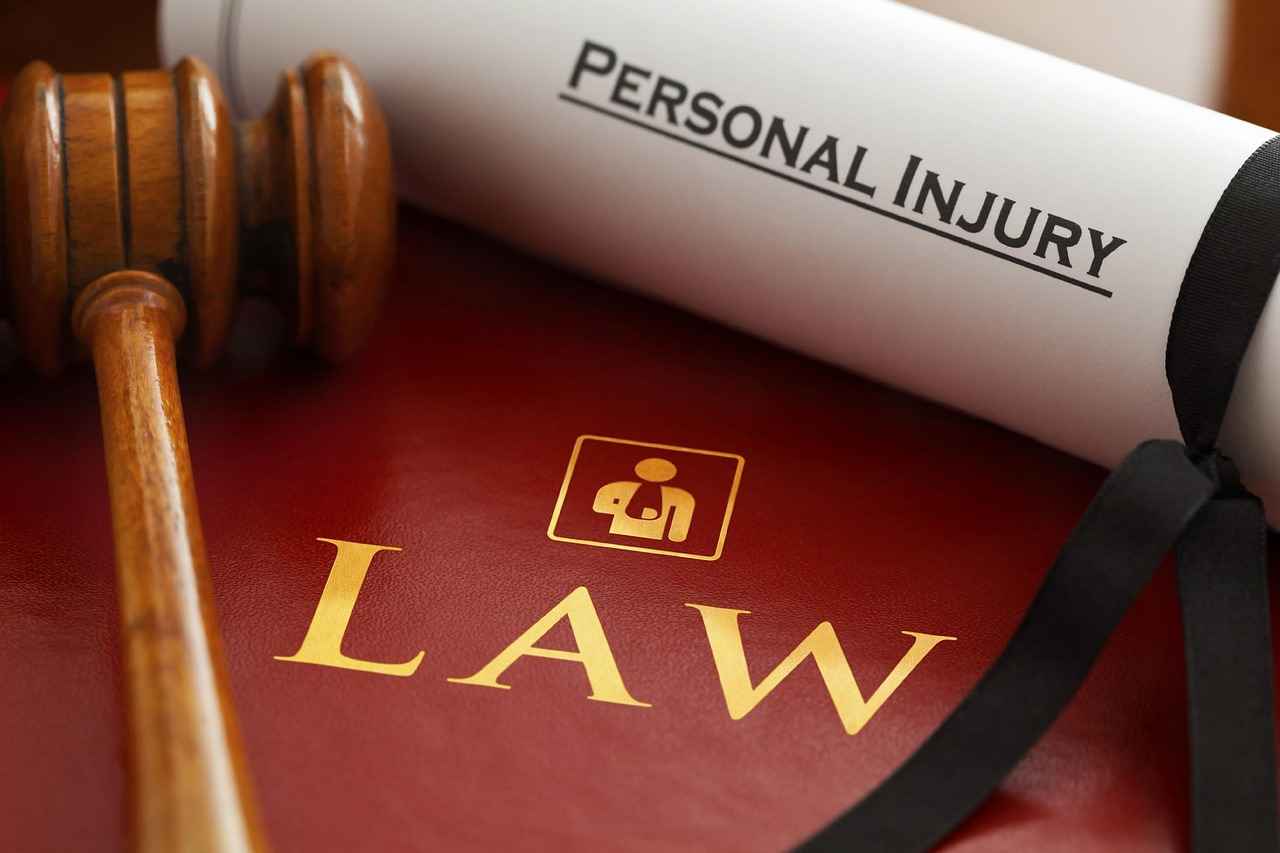
Wrongful Death Claims
Wrongful death claims are a vital aspect of personal injury law, designed to provide compensation to the surviving family members of individuals who have died due to another party’s negligence or intentional actions. These claims can arise from various circumstances, including car accidents, medical malpractice, workplace incidents, and even criminal acts. Understanding the complexities of wrongful death claims is crucial for families seeking justice and financial support in their time of grief.
What constitutes a wrongful death claim? A wrongful death claim can be filed when a person’s death is caused by the negligence or misconduct of another party. This can include a wide range of scenarios, from a distracted driver causing a fatal car accident to a medical professional failing to provide the standard of care, leading to a patient’s death. In such cases, the deceased’s family members may seek compensation for various losses, including funeral expenses, lost income, and emotional suffering.
Why is it important to hire a specialized attorney? Selecting a compassionate and experienced attorney is crucial for navigating the complexities of wrongful death claims. An attorney specializing in wrongful death cases will have a deep understanding of the legal framework and the nuances involved in proving negligence. They can provide invaluable support in gathering evidence, interviewing witnesses, and negotiating with insurance companies. Moreover, they can help families understand their rights and the potential compensation they may be entitled to, which is often a challenging process during a time of emotional distress.
How to find the right wrongful death attorney? When searching for a wrongful death attorney, consider the following steps:
- Research Credentials: Look for attorneys who specialize in wrongful death cases and have a proven track record of success. Check their education, years of experience, and professional affiliations.
- Read Reviews: Online reviews and testimonials can provide insight into an attorney’s reputation and client satisfaction. Websites like Avvo and Martindale-Hubbell can be helpful in this regard.
- Consultation: Many attorneys offer free consultations. Use this opportunity to discuss your case and gauge their understanding and empathy towards your situation.
- Ask About Fees: Understand the attorney’s fee structure. Many wrongful death attorneys work on a contingency fee basis, meaning they only get paid if you win your case.
- Trust Your Instincts: It’s essential to feel comfortable and confident in your attorney’s abilities. Choose someone you can communicate openly with and who shows genuine concern for your case.
Common challenges in wrongful death claims can include proving negligence, dealing with insurance companies, and navigating the emotional complexities involved in the loss of a loved one. An experienced attorney will be adept at overcoming these challenges, ensuring that the claim is pursued effectively and efficiently.
Additionally, wrongful death laws can vary significantly by state, making it even more critical to engage an attorney familiar with the specific laws in your jurisdiction. For instance, some states have a statute of limitations that restricts the time frame within which a claim can be filed, while others may have different rules regarding who is eligible to file a claim. Understanding these nuances can make a significant difference in the outcome of the case.
In summary, wrongful death claims are a complex area of law that requires a knowledgeable and compassionate attorney to navigate effectively. By following the outlined steps for finding the right legal representation, families can ensure that they are well-equipped to pursue justice and compensation for their loss.

Class Action Lawsuits
represent a powerful legal tool that enables a group of individuals with similar grievances to collectively sue a defendant, often a corporation or organization. These lawsuits are particularly significant in cases where individual claims may be too small to justify separate legal action, yet collectively they can represent substantial damages. This legal mechanism not only enhances the efficiency of the judicial process but also serves as a means of holding large entities accountable for their actions.
When considering a class action lawsuit, finding the right attorney is crucial. An attorney experienced in class action suits will have the necessary knowledge and skills to navigate the complexities of these cases. Here are some strategies for locating the most qualified legal representation:
- Research and Referrals: Start by asking friends, family, or colleagues for recommendations. Personal referrals can lead you to trustworthy attorneys who have a proven track record in class action lawsuits.
- Online Legal Directories: Utilize online platforms such as Avvo, Martindale-Hubbell, and FindLaw. These directories allow you to search for attorneys based on their specialties, experience, and client reviews.
- Professional Associations: Check with organizations like the American Bar Association or local bar associations. They often have directories of attorneys categorized by their areas of expertise.
- Consultation Meetings: Many attorneys offer free initial consultations. Use this opportunity to discuss your case, evaluate the attorney’s experience with class actions, and ask about their success rates.
When evaluating potential attorneys, consider the following credentials:
- Experience: Look for attorneys who have successfully handled class action cases similar to yours. Their past experience can be a strong indicator of their ability to manage your case effectively.
- Track Record: Inquire about their success rates in class action lawsuits. A history of favorable settlements or verdicts can provide confidence in their capabilities.
- Communication Skills: The attorney should be able to explain complex legal concepts in a way that is easy to understand. Clear communication is vital for a successful attorney-client relationship.
- Client Testimonials: Reading reviews or testimonials from previous clients can give you insight into the attorney’s professionalism and effectiveness.
While searching for a qualified attorney, be aware of potential red flags:
- Excessive Fees: Be cautious of attorneys who demand large upfront fees without a clear explanation of their billing practices. Many class action attorneys work on a contingency basis, meaning they only get paid if you win.
- Lack of Experience: Avoid attorneys who lack experience in class action lawsuits. This area of law requires specific knowledge and skills that general practitioners may not possess.
- Poor Communication: If an attorney is unresponsive or fails to communicate clearly during initial consultations, it may be a sign of how they will handle your case.
In major metropolitan areas like New York City, Los Angeles, and Chicago, the legal market can be competitive. Therefore, it is essential to conduct thorough research and take the time to find an attorney who not only meets your legal needs but also aligns with your expectations for communication and support throughout the legal process.
In conclusion, class action lawsuits can provide a means for individuals to seek justice collectively. By following the guidelines outlined above, you can enhance your chances of finding a qualified attorney who will advocate effectively on your behalf. Remember, the right legal representation can make a significant difference in the outcome of your case.

Criminal Cases: Assault and Battery
Criminal cases involving assault and battery are serious matters that can have significant legal consequences. These cases are characterized by intentional harm inflicted upon another individual, whether through threats or physical violence. Understanding the nuances of these charges is critical for anyone facing such allegations, as the legal definitions and implications can vary significantly by jurisdiction.
When navigating assault and battery cases, it is essential to engage a qualified criminal defense attorney who specializes in this area of law. These attorneys possess the necessary expertise to understand the complexities of the legal system, including the specific laws that apply to your situation. They can help you build a robust defense strategy, ensuring that your rights are protected throughout the legal process.
In many jurisdictions, assault is defined as an act that creates an apprehension of imminent harmful or offensive contact, while battery involves the actual physical contact or harm. The distinction between these two charges can be crucial, as the penalties and defenses may differ significantly. For instance, assault may be charged as a misdemeanor or felony, depending on the circumstances, while battery often carries more severe penalties due to the actual harm inflicted.
Finding the right attorney is paramount. Here are several tips to consider when searching for a criminal defense lawyer in assault and battery cases:
- Specialization: Look for attorneys who specialize in criminal defense, particularly those with experience in assault and battery cases. This specialization ensures they are familiar with the intricacies of relevant laws and previous case outcomes.
- Reputation: Research the attorney’s reputation within the legal community. Online reviews, testimonials, and case results can provide insight into their effectiveness and client satisfaction.
- Consultation: Schedule initial consultations with multiple attorneys. This allows you to gauge their communication style, understanding of your case, and overall approach to defense.
- Credentials: Verify their credentials, including education, bar admissions, and any specialized certifications. Membership in professional organizations can also indicate a commitment to ongoing education and best practices.
- Red Flags: Be wary of attorneys who promise guaranteed outcomes or who seem overly aggressive in their tactics. A trustworthy attorney will provide realistic assessments and focus on building a solid defense.
In addition to these practical tips, it is crucial to understand the potential consequences of assault and battery charges. Depending on the severity of the offense, individuals may face substantial fines, probation, or even imprisonment. Furthermore, a conviction can have lasting impacts on one’s personal and professional life, including difficulty finding employment or housing.
As you navigate the complexities of assault and battery cases, remember that engaging a knowledgeable and experienced attorney can make a significant difference in the outcome of your case. They can provide guidance on legal strategies, negotiate plea deals, and represent you in court if necessary. By taking the time to find the right legal representation, you can better protect your rights and work towards achieving a favorable resolution.

Drug Offenses
encompass a wide array of illegal activities associated with controlled substances, including possession, distribution, manufacturing, and trafficking. These charges can have severe consequences, impacting not only the accused but also their families and communities. Given the complexities of drug laws, it is crucial to understand how to navigate these legal waters effectively.
When facing drug-related charges, the expertise of a knowledgeable attorney can significantly influence the outcome of a case. An experienced lawyer can analyze the details of the incident, identify potential defenses, and negotiate plea deals that could reduce penalties or even lead to case dismissal. They can also provide insight into diversion programs that may be available, allowing individuals to seek rehabilitation instead of incarceration.
In major metropolitan areas like New York City, Los Angeles, and Chicago, the legal landscape surrounding drug offenses can be particularly challenging due to the high volume of cases and the aggressive prosecution often seen. Here are some strategies for finding the best legal representation for drug offenses:
- Research Local Attorneys: Start by looking for attorneys who specialize in criminal defense, particularly those with a focus on drug offenses. Websites like Avvo and FindLaw can provide reviews and ratings of lawyers in your area.
- Check Credentials: Look for attorneys with experience in drug-related cases, as well as relevant certifications. Membership in professional organizations such as the National Association of Criminal Defense Lawyers (NACDL) can be a good indicator of a lawyer’s commitment to their field.
- Consult Multiple Lawyers: Schedule consultations with several attorneys to discuss your case. This not only helps you gauge their expertise but also allows you to assess their communication style and how comfortable you feel working with them.
- Evaluate Track Records: Inquire about their success rates in handling drug offenses. A lawyer with a proven track record of favorable outcomes in similar cases can provide confidence in their abilities.
- Beware of Red Flags: Be cautious of attorneys who guarantee specific outcomes or pressure you to make quick decisions. A reputable lawyer will provide honest assessments and allow you to take your time in making choices.
In addition to these strategies, understanding the various types of drug offenses is essential. Common charges include:
- Possession: Being caught with illegal substances, which can vary in severity depending on the type and amount of drug.
- Distribution: Selling or distributing controlled substances, often leading to harsher penalties.
- Manufacturing: Producing illegal drugs, which is a serious felony in many jurisdictions.
- Trafficking: Involvement in large-scale drug operations, which can result in severe federal charges.
Moreover, each state has its own laws regarding drug offenses, and penalties can vary significantly. For example, some states offer drug courts that focus on rehabilitation rather than punishment, which can be beneficial for first-time offenders or those with substance abuse issues.
Ultimately, when dealing with drug offenses, the right attorney can make a world of difference. They will not only advocate for your rights in court but also guide you through the legal process, ensuring you understand your options and the potential consequences of each decision. Whether you are in Houston or Los Angeles, finding a qualified attorney who specializes in drug offenses is vital to achieving the best possible outcome for your case.
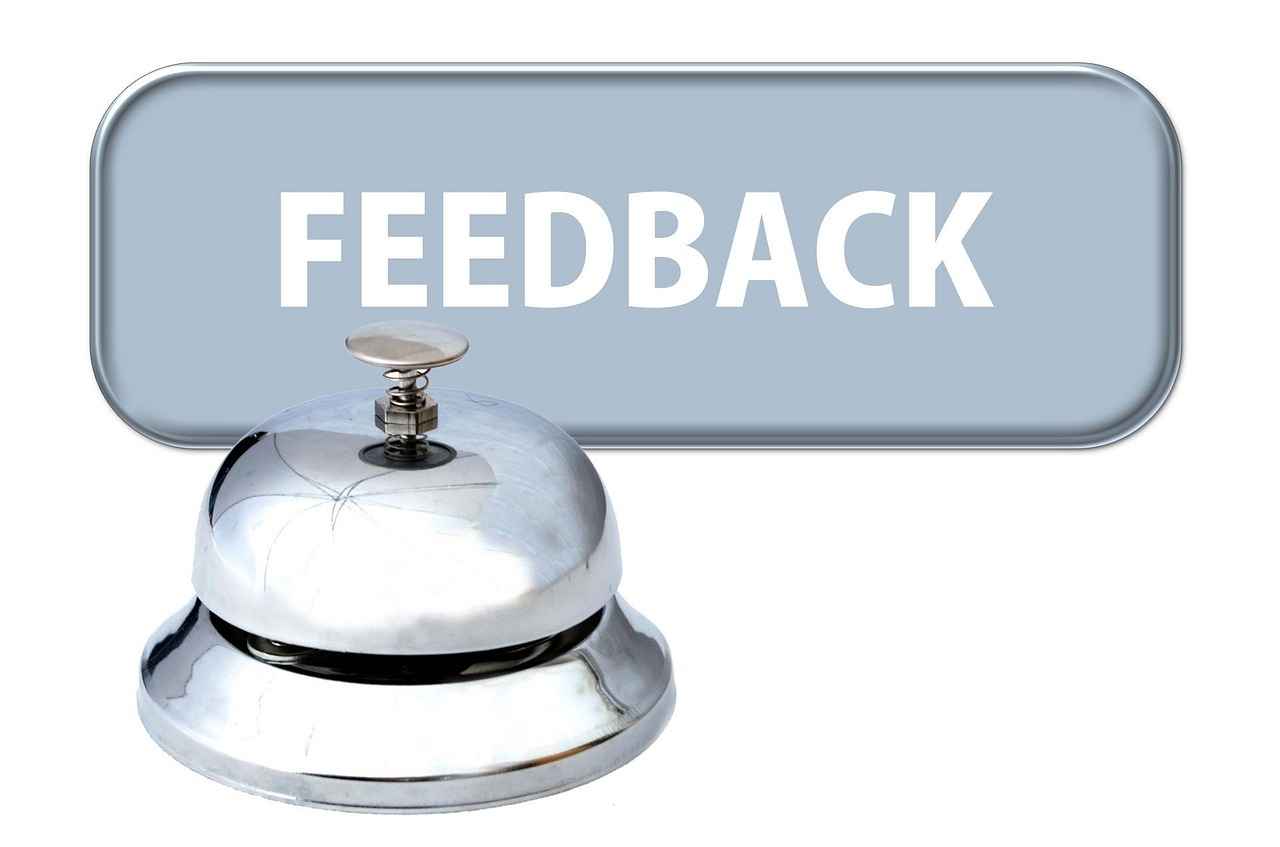
Theft and Burglary Charges
Theft and burglary are serious criminal offenses that can have long-lasting effects on the lives of those accused. The legal implications of these charges can be severe, including hefty fines and imprisonment. Therefore, it is crucial to seek skilled legal representation if you find yourself facing such allegations. In this section, we will delve into the intricacies of theft and burglary charges, and provide guidance on how to find an attorney with the appropriate criminal defense experience.
Understanding the distinction between theft and burglary is essential. Theft typically involves taking someone else’s property with the intent to permanently deprive the owner of it. On the other hand, burglary involves entering a building or structure with the intent to commit a crime, usually theft, once inside. Both offenses are treated seriously by the legal system, and the penalties can vary significantly based on the circumstances of the case.
When searching for an attorney to represent you in theft or burglary cases, consider the following key factors:
- Experience in Criminal Defense: Look for an attorney who specializes in criminal law, particularly in theft and burglary cases. Their experience will be invaluable in navigating the complexities of your case.
- Track Record: Investigate the attorney’s history of handling similar cases. A successful track record in defending clients against theft and burglary charges can be a strong indicator of their capabilities.
- Client Testimonials: Read reviews and testimonials from previous clients. This can provide insight into the attorney’s communication skills, approach to cases, and overall effectiveness.
- Initial Consultation: Many attorneys offer a free initial consultation. Use this opportunity to assess their understanding of your situation and their proposed strategy for your defense.
- Legal Fees: Understand the attorney’s fee structure upfront. Some may charge a flat fee, while others bill hourly. Make sure you are comfortable with the financial aspect before proceeding.
In metropolitan areas like New York City, Los Angeles, and Chicago, the competition among attorneys can be fierce. Utilize online platforms such as Avvo, FindLaw, or Justia to research potential attorneys. These platforms often provide ratings, reviews, and detailed profiles of lawyers, making it easier to find someone who meets your needs.
It is also crucial to be aware of red flags when hiring a lawyer. Avoid attorneys who:
- Promise guaranteed outcomes, as no attorney can guarantee a specific result.
- Do not communicate clearly or fail to provide detailed information about their fees and services.
- Pressure you into making quick decisions without allowing you to think through your options.
In summary, facing theft and burglary charges can be daunting, but finding the right legal representation is essential for a fair trial. By focusing on an attorney’s experience, track record, and client feedback, you can make an informed decision that will significantly impact the outcome of your case. Remember, the right attorney can not only provide a strong defense but also offer peace of mind during this challenging time.

Fraud and Embezzlement Cases
Fraud and embezzlement are serious offenses that involve deceitful practices aimed at achieving financial gain. These white-collar crimes can have devastating effects on individuals and organizations alike. In the U.S., fraud may take various forms, including insurance fraud, credit card fraud, and investment fraud, while embezzlement typically involves the misappropriation of funds placed in one’s trust, often by employees or officials.
When facing allegations of fraud or embezzlement, it is crucial to seek the help of an attorney who specializes in white-collar crime. Such attorneys possess the necessary expertise and understanding of the legal intricacies involved in these cases, which can be quite complex. They can provide effective defense strategies or assist in prosecution if you are a victim of such crimes.
Here are some essential factors to consider when searching for a qualified attorney to handle fraud and embezzlement cases:
- Experience in White-Collar Crime: Look for attorneys who have a proven track record in handling cases similar to yours. Their experience can significantly impact the outcome of your case.
- Reputation: Research the attorney’s reputation within the legal community. Online reviews, testimonials, and referrals from trusted sources can provide insight into their credibility.
- Credentials: Verify the attorney’s credentials, including their education, professional affiliations, and any certifications in criminal law or white-collar crime.
- Understanding of Financial Systems: An attorney with a solid grasp of financial systems and regulations will be better equipped to navigate the complexities of fraud and embezzlement cases.
- Communication Skills: The attorney should be able to explain legal concepts in a way that you can understand, ensuring you are informed and comfortable throughout the process.
- Initial Consultation: Many attorneys offer a free initial consultation. Use this opportunity to assess their approach and determine if they are a good fit for your case.
In metropolitan areas like New York City, Los Angeles, and Chicago, there are numerous legal professionals available, but not all are equally qualified. Utilize platforms such as Avvo, FindLaw, and Martindale-Hubbell to search for attorneys specializing in fraud and embezzlement. These platforms provide detailed profiles, including ratings, reviews, and areas of expertise, enabling you to make an informed decision.
Additionally, be cautious of red flags during your search. Avoid attorneys who promise guaranteed outcomes, as legal cases are inherently unpredictable. Also, be wary of those who pressure you into making quick decisions or who lack transparency about their fees. A trustworthy attorney will provide clear and honest information about the potential costs involved.
Ultimately, choosing the right attorney for fraud and embezzlement cases can significantly influence the trajectory of your legal journey. By taking the time to conduct thorough research and considering the factors outlined above, you can find a skilled legal professional who will advocate for your best interests.
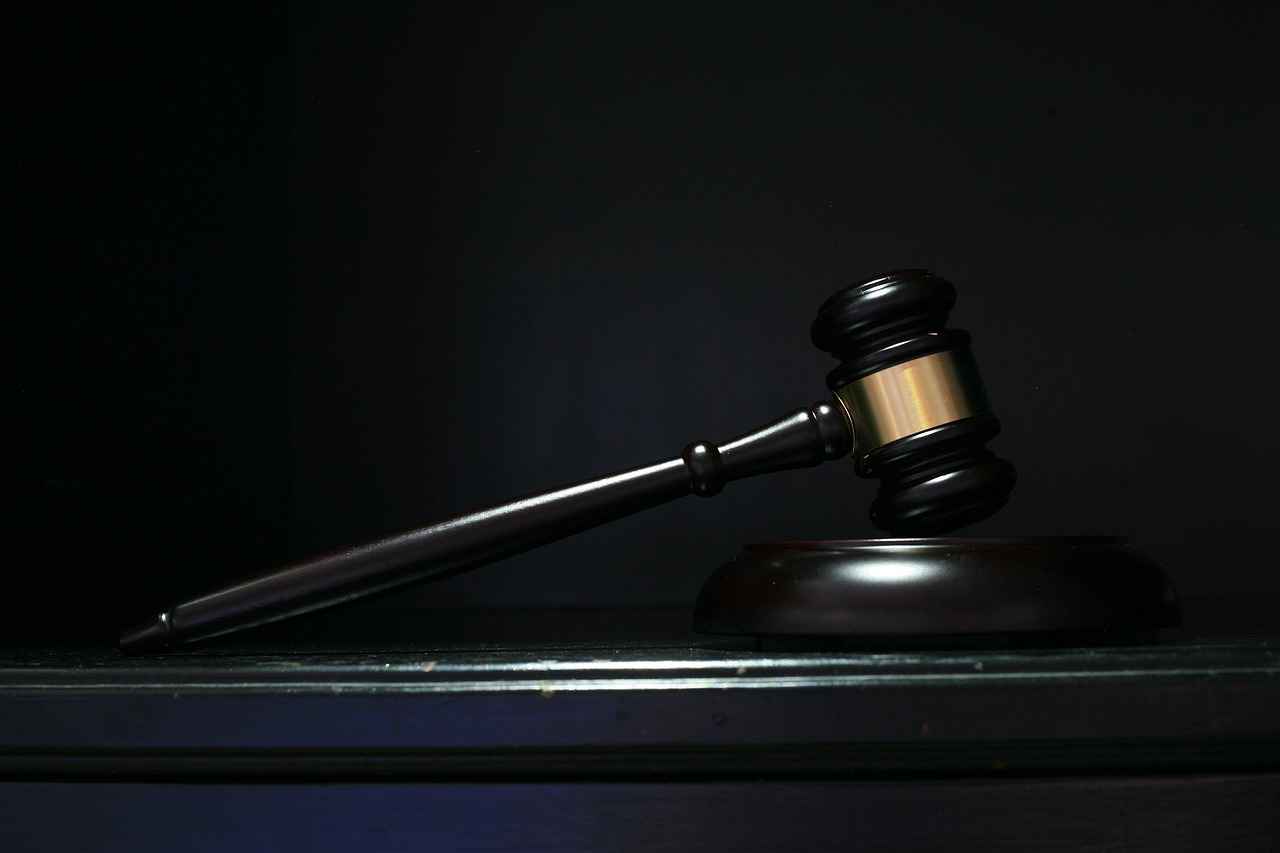
Domestic Violence Cases
are among the most sensitive and complex legal matters in the United States. They require a nuanced understanding of the law, as well as a compassionate approach to the individuals involved. Victims often face emotional and psychological trauma, making it imperative to handle these cases with care. If you or someone you know is dealing with domestic violence, finding an experienced attorney who specializes in family law is crucial for navigating the legal landscape effectively.
When searching for a lawyer, consider looking for those who have a strong background in family law and specifically in domestic violence cases. These attorneys are well-versed in protective orders, which are legal documents that can help keep the abuser away from the victim. They can also assist with custody issues, ensuring that the victim’s children are safe and protected.
To find the right attorney, start by seeking referrals from trusted sources, such as friends, family, or local support groups for domestic violence victims. Online platforms like Avvo or FindLaw can also be useful for researching attorneys in your area. Look for lawyers who have positive reviews and a proven track record in handling domestic violence cases.
One important credential to look for is whether the attorney is a member of organizations such as the American Bar Association or local family law associations. These memberships often indicate a commitment to staying updated on the latest laws and best practices. Additionally, inquire about their experience with protective orders and their approach to custody disputes, as these are often critical components of domestic violence cases.
When interviewing potential lawyers, pay attention to how they communicate. A good attorney should demonstrate empathy and understanding, making you feel comfortable discussing your situation. Be wary of any attorney who seems dismissive or overly aggressive, as this may indicate a lack of sensitivity to the complexities of domestic violence cases.
Lastly, consider the attorney’s fees and billing structure. While it’s important to find a qualified lawyer, it’s equally essential to ensure that their services are within your budget. Many attorneys offer free consultations, which can provide an opportunity to gauge their expertise and approach without financial commitment.
In summary, when dealing with , it is vital to find an attorney who is not only experienced but also compassionate and understanding. By following these guidelines, you can better navigate the legal system and seek the protection and justice you deserve.

Divorce and Family Law
Divorce cases are often fraught with complex emotional and financial issues. The decision to end a marriage can lead to significant changes in both parties’ lives, making it essential to navigate the legal landscape carefully. Selecting a family law attorney with experience in divorce can facilitate a smoother process, ensuring that your rights are protected and that you understand the implications of your decisions.
When looking for a divorce attorney, consider the following key factors:
- Experience: Look for an attorney who specializes in family law and has substantial experience with divorce cases. An attorney familiar with local laws and court procedures can provide invaluable insights.
- Reputation: Research online reviews and ask for referrals from friends or family. A well-respected attorney is likely to have a track record of successful outcomes.
- Communication: Choose an attorney who communicates clearly and promptly. You want someone who will keep you informed throughout the process and answer your questions.
- Fees: Understand the fee structure upfront. Some attorneys charge hourly rates, while others may offer flat fees for specific services. Make sure you are comfortable with the financial arrangements.
- Personal Compatibility: Since divorce is a highly personal matter, it’s crucial to work with someone you feel comfortable with. A good attorney should be empathetic and supportive while also providing sound legal advice.
In addition to these factors, consider the following methods for finding qualified attorneys:
- Online Legal Directories: Websites such as Avvo, FindLaw, and the American Bar Association can help you find qualified family law attorneys in your area.
- Consultations: Many attorneys offer free initial consultations. Use this opportunity to gauge their expertise and determine if they are the right fit for your case.
- Professional Associations: Membership in organizations such as the American Academy of Matrimonial Lawyers (AAML) can indicate a commitment to high standards in family law.
It is also important to recognize potential red flags when selecting an attorney:
- Lack of Transparency: If an attorney is unwilling to discuss fees or provide clear information about their services, consider this a warning sign.
- High Turnover Rates: Frequent changes in staff or attorneys at a firm can indicate instability and may affect the quality of representation.
- Pressure Tactics: Be cautious of attorneys who pressure you into making quick decisions or signing contracts without fully understanding the implications.
Ultimately, the right attorney can make a significant difference in the outcome of your divorce. They will help you navigate issues such as child custody, child support, spousal support (alimony), and division of assets. By taking the time to research and choose the best representation, you can ensure that your interests are protected during this challenging time.

Bankruptcy Cases
Bankruptcy is a legal process designed to provide relief to individuals or businesses that are unable to meet their financial obligations. The implications of declaring bankruptcy can be profound, affecting various aspects of one’s financial life. It is crucial to understand the different types of bankruptcy filings, such as Chapter 7, Chapter 11, and Chapter 13, each offering unique benefits and obligations. For instance, Chapter 7 allows for the liquidation of assets to pay off debts, while Chapter 13 enables individuals to create a repayment plan to settle their debts over time.
Engaging a qualified bankruptcy attorney is essential in navigating this complex legal landscape. A knowledgeable attorney can provide invaluable guidance throughout the process, from filing the initial paperwork to representing you in court. They will help you understand the implications of filing for bankruptcy, including the potential impact on your credit score and future financial endeavors.
When searching for a bankruptcy attorney, consider the following practical tips:
- Look for Specialization: Ensure the attorney specializes in bankruptcy law. This expertise is crucial as bankruptcy laws can vary significantly by state.
- Check Credentials: Review the attorney’s qualifications, including their education, years of experience, and any relevant certifications.
- Read Reviews: Look for client testimonials and online reviews to gauge the attorney’s reputation and success rate in handling bankruptcy cases.
- Seek Referrals: Ask friends, family, or financial advisors for recommendations. Personal referrals can provide insights into an attorney’s effectiveness and approach.
- Initial Consultation: Many attorneys offer free consultations. Use this opportunity to ask questions about their experience, fees, and approach to your specific situation.
Additionally, be cautious of red flags when hiring a bankruptcy attorney:
- High Pressure Tactics: Avoid attorneys who pressure you into making quick decisions or filing immediately.
- Unclear Fees: Ensure the attorney provides a clear breakdown of their fees and any additional costs associated with your case.
- Lack of Communication: Choose an attorney who is responsive and communicates clearly. A good attorney should keep you informed throughout the process.
In metropolitan areas like New York City, Los Angeles, and Chicago, the competition among bankruptcy attorneys can be fierce. Therefore, it is essential to conduct thorough research and consider multiple options before making your choice. Utilizing online legal platforms, such as Avvo or FindLaw, can help you compare attorneys based on their expertise, client reviews, and case outcomes.
Ultimately, the right bankruptcy attorney will not only help you navigate the legalities of filing for bankruptcy but also provide support and guidance as you work towards regaining financial stability. Remember that bankruptcy is a tool to help you recover from financial distress, and with the right legal representation, you can emerge from the process with a fresh start.
Frequently Asked Questions
- What should I look for when hiring a personal injury attorney?
When hiring a personal injury attorney, consider their experience, success rate, and client reviews. You want someone who understands the nuances of your case and can communicate effectively on your behalf.
- How can I determine if I have a valid medical malpractice claim?
To determine if you have a valid medical malpractice claim, consult with a specialized attorney who can evaluate your case based on the standard of care and whether it was breached. They can help you understand the complexities involved.
- What are the common causes of breach of contract disputes?
Common causes of breach of contract disputes include failure to deliver goods or services, not meeting deadlines, or not adhering to the terms outlined in the contract. An experienced attorney can help you navigate these issues.
- What should I do if I am facing a landlord-tenant dispute?
If you’re facing a landlord-tenant dispute, gather all relevant documents such as leases and communication records. Consult with a knowledgeable attorney to understand your rights and the best course of action.
- How can I protect myself in an employment dispute?
To protect yourself in an employment dispute, document all interactions and keep records of any incidents. Engaging a lawyer who specializes in employment law can help you navigate the complexities and fight for your rights.














